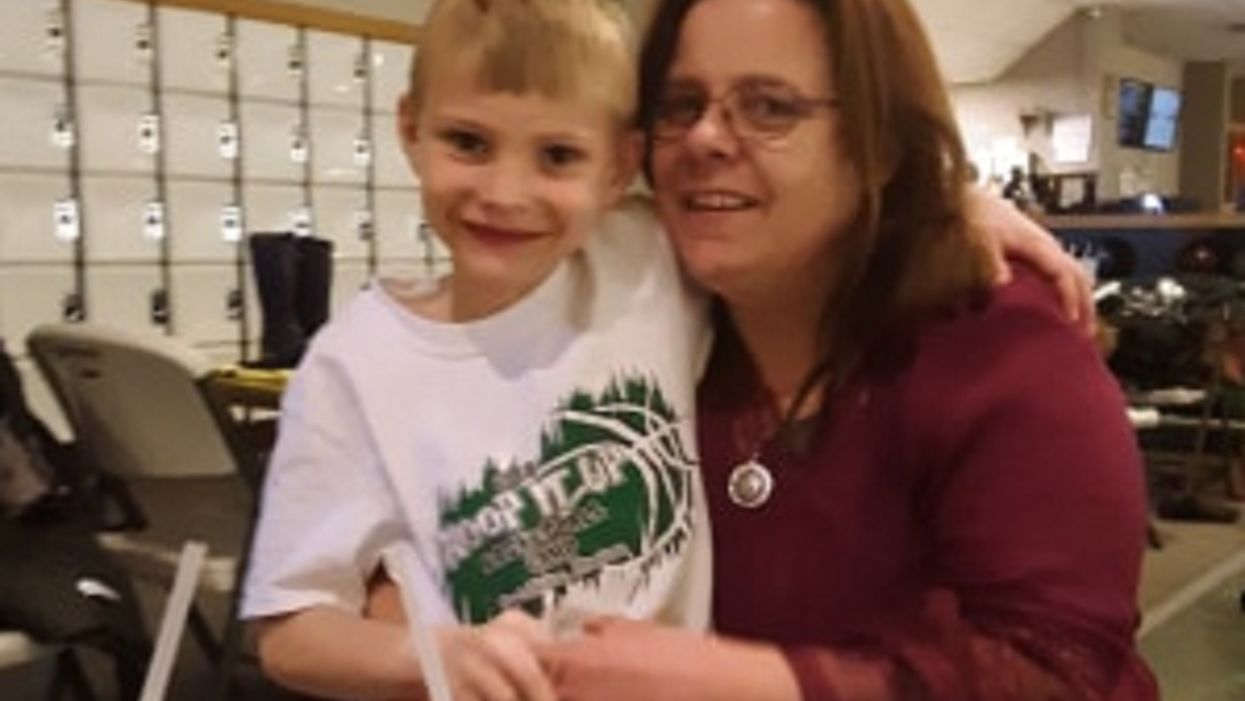
(Image source: Debbie Westlake)

The Trump administration has taken action to try to keep kids from being taken — and kept — in exchange for federal dollars
Most Americans would never imagine that going to the hospital could result in the government seizing their child, but that's exactly what happened to Debbie Westlake when she went to the emergency room three years ago.
Montana's Child & Family Services division sent out a social worker on their first "Priority 1" call who determined Westlake's 4-year-old son, Robert, should be taken from daycare to foster care before his mother was released from the hospital that day.
There were no allegations of child abuse or substance abuse — the state wanted to make sure Westlake had an adequate backup plan for a babysitter in the instance of her getting sick again. Now, Robert has been adopted out to another family, and his case shines a light on how states are incentivized to bring kids into the system and keep them there in exchange for federal dollars.
CFS required Westlake to take a slew of courses and attend counseling, which she did. In the meantime, she had a hysterectomy that cleared up the symptoms that landed her in the hospital in the first place. But she could never reach the state's demands.
According to court documents obtained by TheBlaze, District Judge Michael Menahan admitted during proceedings, "I have to say that this is one of the more difficult cases, if not the most difficult case, that I've had in terms of the narrow legal issue as to whether or not to grant temporary investigative authority and emergency protective services based on a finding of probable cause that a child — in this case, Robert — may be a youth in need of care."
Nonetheless, Judge Menahan ultimately decided the boy would be better off raised by someone else and terminated Westlake's parental rights, and the Montana Supreme Court upheld the ruling on appeal.
Robert was adopted earlier this year by a couple who had no children of their own.
Meanwhile, the rookie social worker, Grace Zitzer, who pushed for Robert's removal in the first place bragged of the "patience and kindness" she learned at CFS as part of her bid to become the reigning Miss Montana.
What happened to the Westlake family is egregious, but far from rare. Richard Wexler, executive director of the National Coalition for Child Protection Reform wrote in the Montana Standard earlier this year that "contempt for parents who use drugs, or parents who simply are poor and whose poverty is confused with 'neglect,' runs so deep that Montana now has a dubious distinction: It is the child removal capital of America."
The state of Montana's Child & Family Services division has been under fire for years; plagued by high turnover, accusations of mismanagement, and — most alarmingly — taking children from their parents and placing them into the foster care system at consistently high rates.
A 2017 analyst published by Child Trends shows Montana has nearly three times the rate of children in foster care than the national average, at 16.8 per 1,000 — more than any other state besides West Virginia.
While the rate of children in foster care has been on the rise across the U.S. and often linked with substance abuse by guardians, drug and alcohol use among parents who lost their kids in Montana isn't much higher than the national average, according to data compiled by the National Center on Substance Abuse and Child Welfare.
Just a few months ago, a number of former department employees claimed to the Daily Interlake that they were bullied by supervisors into removing kids on unfounded grounds.
As the number of children in the Montana foster system has increased, so have the millions of dollars in federal funding the state receives. But protests by whistleblowers, parents, and advocates have also grown, causing lawmakers and the judicial system to take notice.
The massive spending bill signed by President Donald Trump in February included a law called the Family First Prevention Services Act. According to an analysis by The Pew Charitable Trusts, the legislation was "propelled by the belief that children in difficult homes nearly always fare best with their parents," and "effectively blows up the nation's troubled foster care system."
Under the Family First Prevention Services Act, the $8 billion divvied out to states for kids in foster care would be restricted and redirected to focus on keeping families together rather than incentivizing foster placement.
Montana state lawmakers are trying to correct their system, too, but have repeatedly faced pushback from Gov. Steve Bullock (D), who recently vetoed legislation that would have authorized the Office of the Child and Family Ombudsman to investigate complaints of retaliatory action against parents.
The governor argued in his letter explaining the veto that the bill, HB 753, "would permit civil lawsuits based on ex parte investigations against workers, disregarding their due process rights." He concluded that the legislation "creates a specter of legal liability that will make it even harder for the state to recruit and retain good workers, leaving children less safe and delaying the goal of everyone involved: family reunification."
Debbie Westlake doesn't believe family reunification was the goal of the state in her case, and court documents support her claim. Maybe Miss Montana could use her influence and platform to see if her state could take another look at the processes for taking kids from their homes.